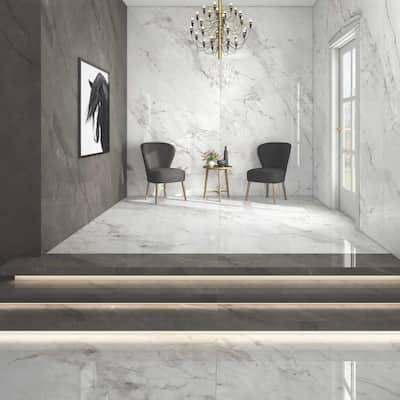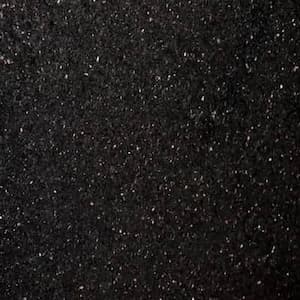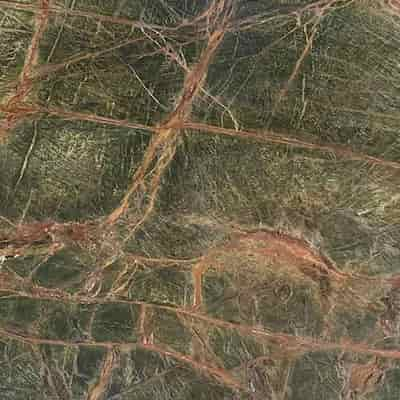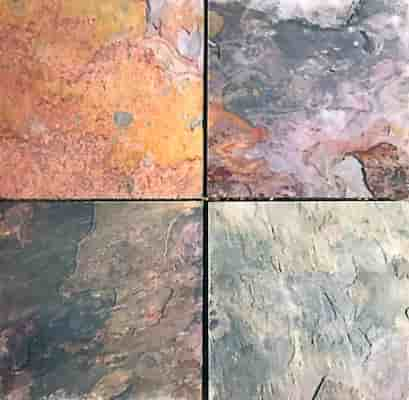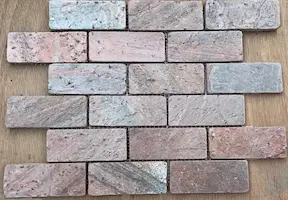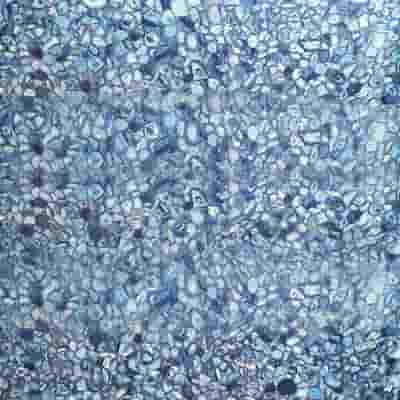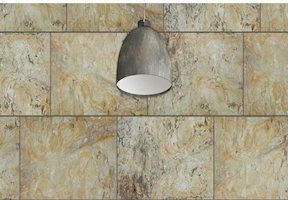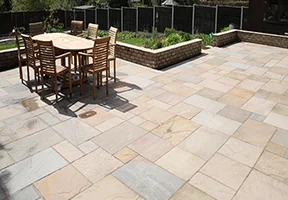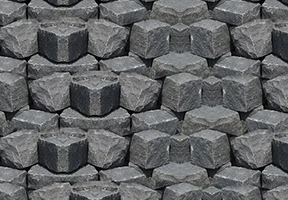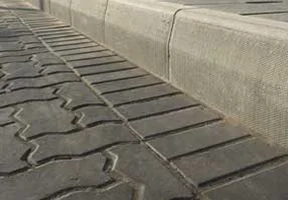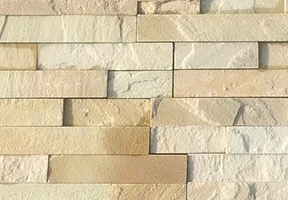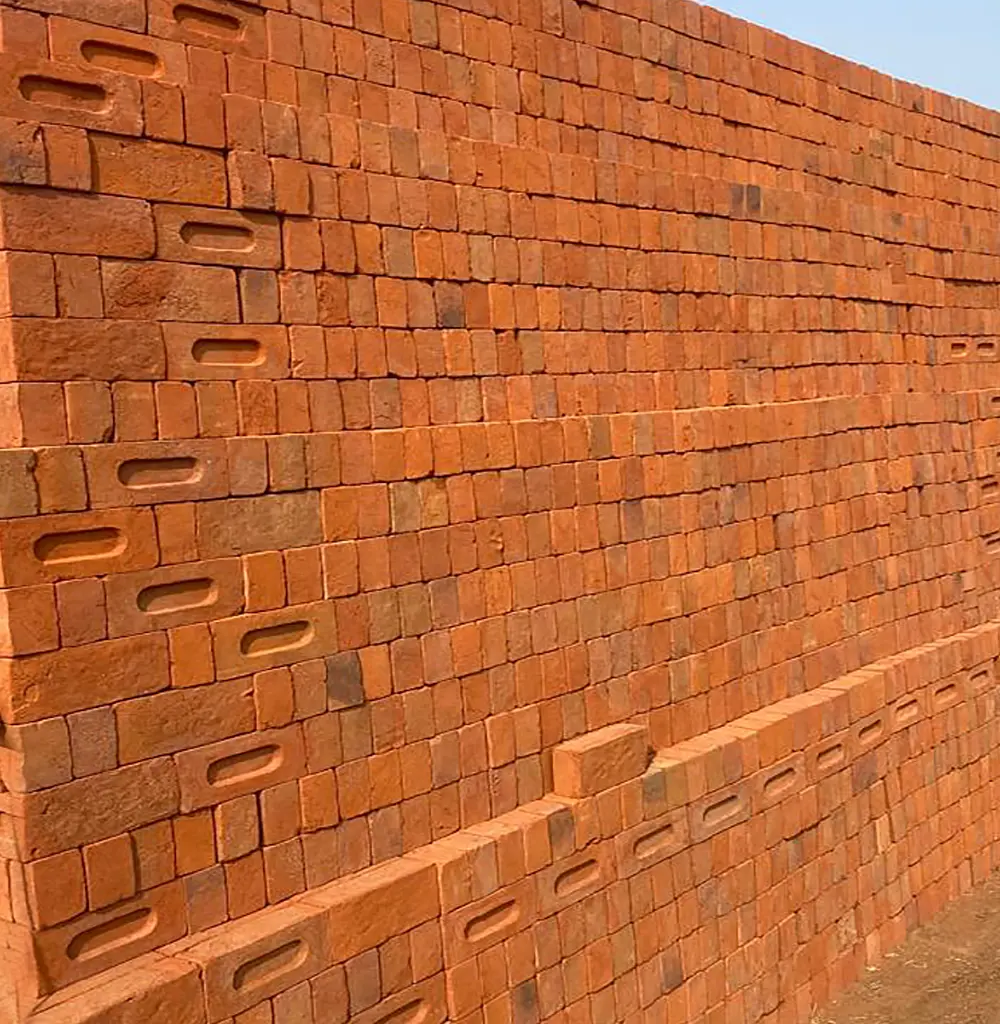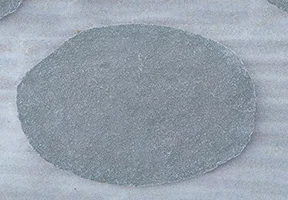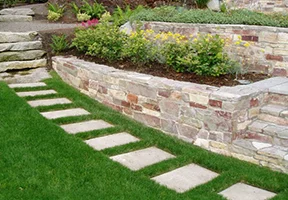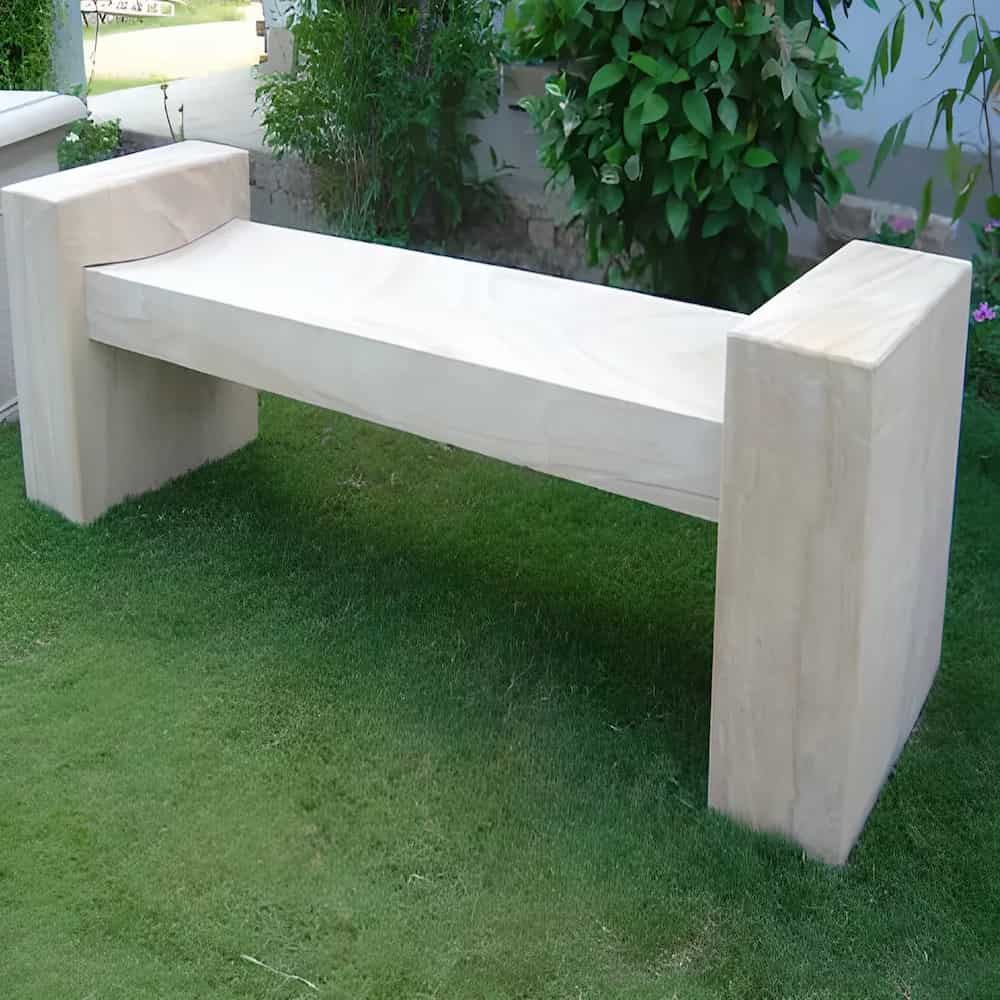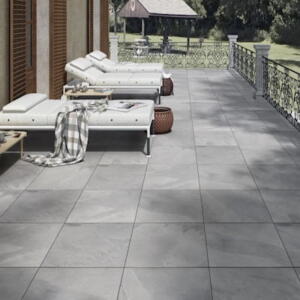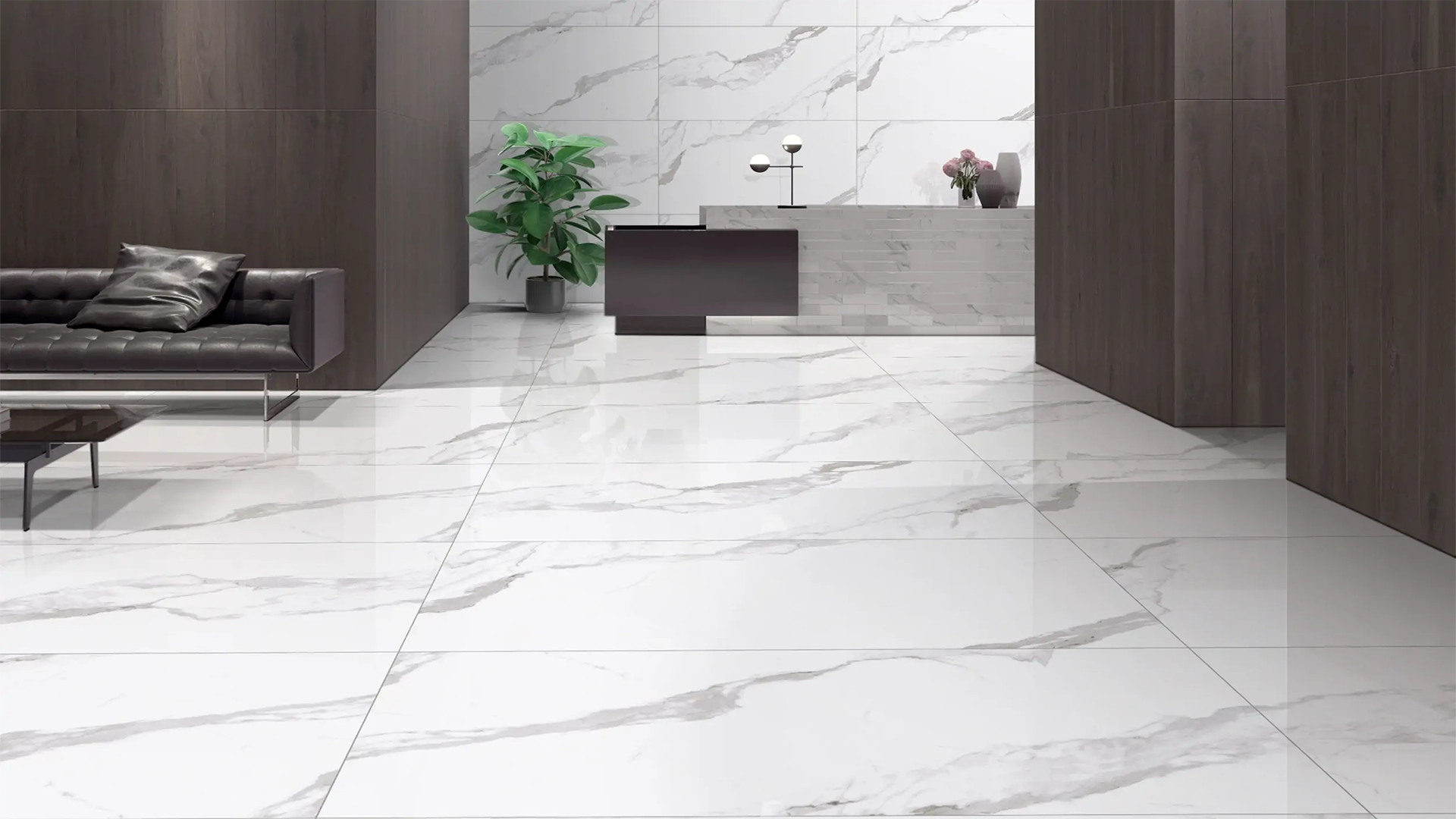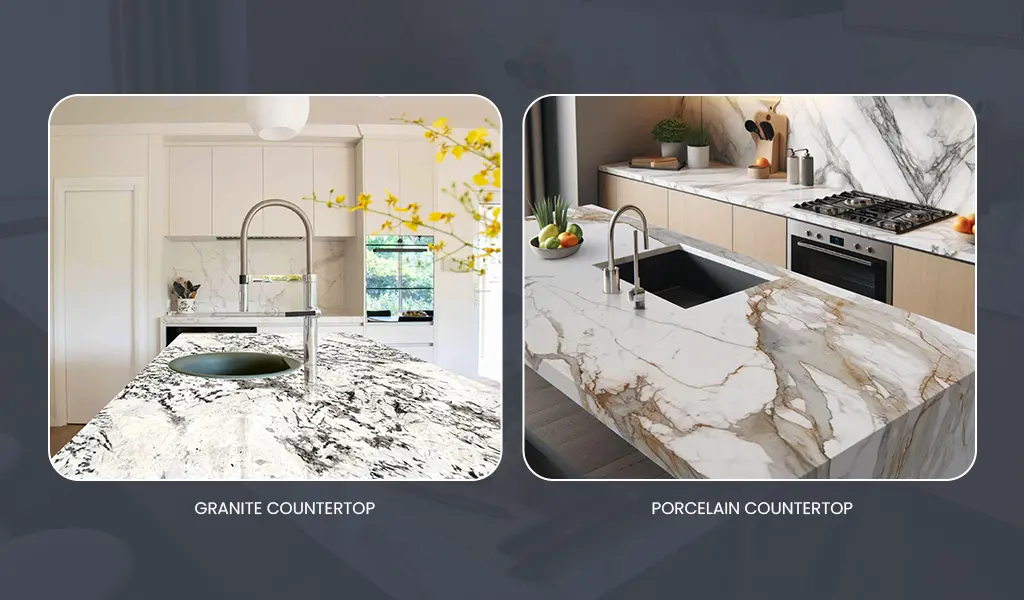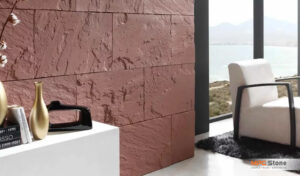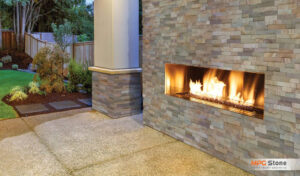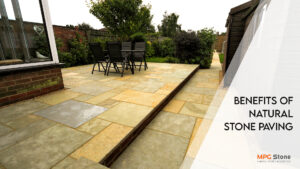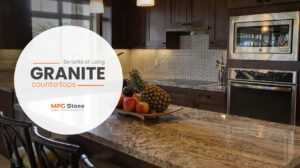When selecting kitchen countertops, homeowners often find themselves torn between two excellent choices: granite vs. porcelain. Both options have their own unique qualities, and understanding them thoroughly can help you make an informed decision that suits your project needs. This blog post simplifies and compares granite vs. porcelain countertops to help you choose the best option for your home.
Granite is one of the most favorable options for kitchen countertops, and people have been using it for thousands of years. On the other hand, porcelain slabs recently came into the trend as one of the most popular countertop options in the USA and worldwide, but they have been popular in Europe for years now.
Choosing one of both good options can be a daunting task. That’s why we are here to let you decide which is the go-to option for you based on different parameters and bases.
What is a granite stone?
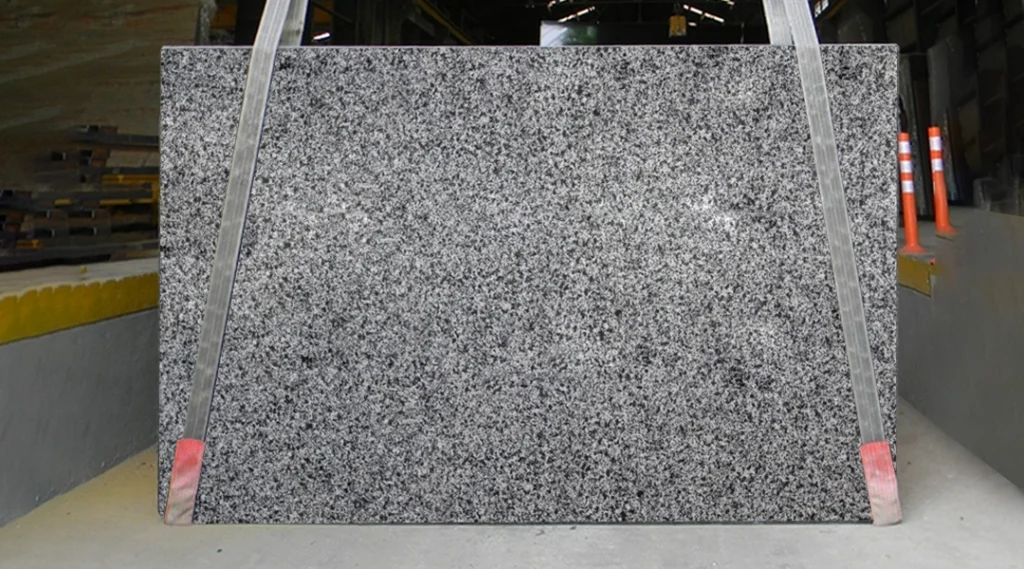
Granite is one of the strongest natural stones, formed from quartz, feldspar, and other materials in minor amounts. by crystallizing the magma under the earth’s crust.
Pros of Granite Stone Slabs
- Granite is the second most durable stone on earth after diamond, with a hardness of 6 or 7 on the Mohs scale of hardness.
- Granite, as a countertop material, resists staining, making it popular among homeowners and designers.
- Granite is a beautiful natural stone that exudes the stunning beauty of nature, adding value to any property it is used on.
- Granite countertops are also easy to care for and don’t require much cleaning or maintenance.
- They exude a unique appearance, and each slab differs from others in terms of looks, being crafted from nature itself.
Cons of Granite Stone Slabs
- Granite is a porous stone that, if not sealed properly, can absorb moisture and stains.
- Granite is a slightly more costly material as compared to other natural stones, which may not fit your budget requirements.
- Installing granite slabs is a time-consuming task and can only be done by professionals.
What is a porcelain stone?

Porcelain is an engineered stone material that is crafted to mimic the natural look of natural stones. This engineered stone is crafted using clay, feldspar, and sand by baking it at a very high temperature, which results in a highly dense and strong surface material.
Pros of porcelain slabs
- In the debate of granite vs. porcelain countertops, porcelain is a highly durable, dense, and strong material.
- Porcelain slabs are also highly resistant to moisture, making them an ideal choice to use as a countertop material.
- Porcelain slabs are also low-maintenance and don’t require much care, which saves a lot of time.
Cons of porcelain slabs
- Porcelain slabs are quite expansive as compared to natural stone material options, making them not a first choice for buyers.
- Porcelain slabs are quite heavy in weight, which makes them hard to handle for DIYers.
- Porcelain slabs are hard to install and require professional assistance.
Below, we have listed the differences between both countertop materials. Go through every basis thoroughly and choose the best option among granite vs. porcelain for your project’s needs.
Porcelain vs. granite: A thorough differentiation

a. Type of Stone
Granite is a natural stone formed under the ground of the earth over hundreds and thousands of years. On the other hand, porcelain is an engineered stone that is specifically made to mimic the look of natural stone like marble.
b. Material Composition
In the heated debate of granite vs. porcelain countertops, granite stone is composed of igneous rock of crystalline structure that is formed of cool magma and contains minerals like quartz, feldspar, amphibole, and mica.
On the other hand, porcelain is made by firing some minerals at high temperatures and includes components like silica, feldspar, clay, and other minerals.
c. Appearance
Being a natural stone, granite countertops have a unique and natural appearance with distinctive lining and patterns throughout the surface. It also often features some flecks and visible grains of different materials that create a distinctive look.
While talking about porcelain vs. granite countertops, one major difference is that granite countertops show that no two slabs of this stone look the same.
Porcelain, on the other hand, being an engineered stone, mimics the look of various natural stones, including granite. But porcelain countertops offer a more consistent and uniform look than granite countertops, with a number of various design and color opportunities.
d. Durability
Granite is a highly durable natural material, specifically known for its strength and hardness, which come at 6 on the Mohs scale of hardness after diamond, which is at 10.
Porcelain is also a hard and strong material and has a denser surface. This is due to its manufacturing process, which involves heating it at a very high temperature.
So if we debate between porcelain and granite based on strength, we can’t differentiate between them as both offer almost the same level of durability.
e. Porosity
Porcelain vs. granite countertops: granite is a porous material like sandstone that, if not appropriately sealed, can absorb moisture, spill, and result in damage to stone from the inside.
At the same time, porcelain, being manufactured by machine, is a non-porous material that doesn’t require any sealing and eventually doesn’t let any spills or moisture penetrate its surface.
f. Maintenance
Granite countertops require periodic sealing to keep their surface safe from spills and moisture. And spills should be cleaned up promptly to prevent staining.
On the other hand, while debating granite vs. porcelain countertops, porcelain requires low maintenance as its surface is stain-resistant and doesn’t require sealing.
g. Resistance
Granite is a highly resistant material to heat and scratches and can also withstand harsh weather conditions and normal wear and tear, but it can be cracked if hit by a sharp object.
On the other hand, porcelain is a highly resistant material to heat, moisture, scratches, and stains and can also withstand extreme weather conditions in the UK, giving it an upper hand in the debate of porcelain vs. granite on resistance.
h. Weight
Among granite vs. porcelain countertops, granite countertops are heavier in comparison and are recommended to be treated with care only by professionals due to their natural stone composition.
While porcelain slabs are lighter than granite slabs and are much more flexible, they are still heavier in nature and can also be treated by experts only to prevent any breakage.
i. Cost
When comparing granite and porcelain stones, many people have doubts about whether porcelain countertops are cheaper than granite. We find that granite is known for its natural components and unique characteristics, which come with some additional maintenance considerations.
On the other hand, porcelain is a relatively more affordable option that doesn’t require sealing and offers cost-effectiveness in comparison.
j. Origin
Among porcelain vs. granite countertops, when we talk about the origin, granite, being a natural stone, is extracted from queries. And it comes from the natural deposits of granite rock in the earth, like other natural stones such as limestone.
In comparison, porcelain is an engineered stone that is specifically created using a combination of different raw materials to mimic the original look of other natural stones with the additional benefits of engineered ones.
End Note
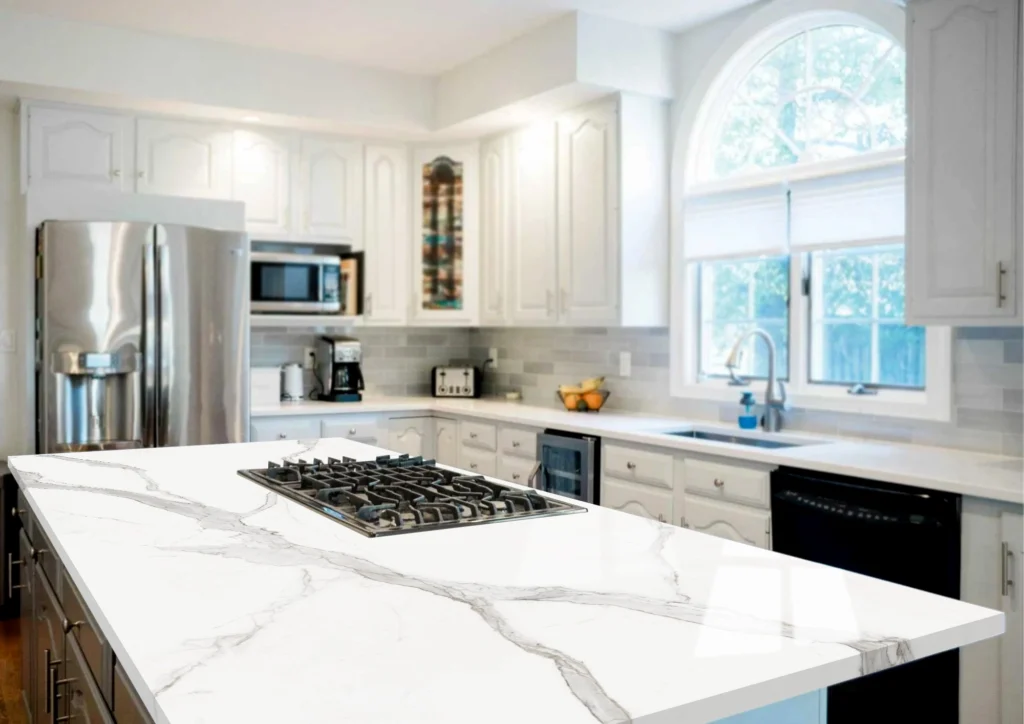
Both materials have their own unique strengths and characteristics, and understanding them thoroughly can help you make an informed decision that suits your project needs. Both materials have their merits, and the choice ultimately depends on your preferences, budget, and lifestyle.
Among the choices of granite vs. porcelain countertops, if you value the allure of natural stone with its unique variations, granite may be your top pick. However, if you seek a versatile, durable, and low-maintenance surface, indoor porcelain might be a better fit for your kitchen countertops.
Regardless of your choice, be sure to consult with professionals to ensure proper installation and long-lasting beauty for your kitchen countertops. Whether you opt for the timeless elegance of granite or the modern appeal of porcelain, a well-chosen countertop will undoubtedly enhance the beauty and functionality of your kitchen for years to come.
At MPG Stone, we offer a wide range of countertop options, including both porcelain and granite. Our team of experts can help you choose the perfect countertop material for your needs. Contact us today to schedule a consultation!
ABOUT THE AUTHOR
Purnima Kaushik is a seasoned content writer and editor with over a decade of experience in the stone and real estate industries. As a leading voice at MPG Stone, she shares insights on installment processes, project insights, design guides, and much more
Don’t Forget To Share This Post
